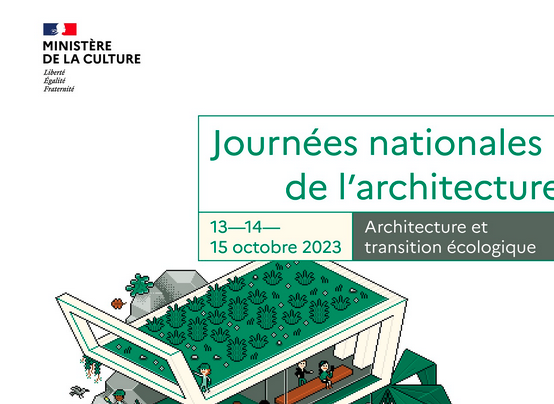Architecture and ecological transition: the new face of the architectural profession

Today, architecture is a key player in environmental issues. Buildings account for a significant proportion of greenhouse gas emissions and energy consumption. Architecture is therefore a key sector in the fight against climate change, but it is also a practice that can help preserve biodiversity and save resources. Architects are faced with the challenge of designing sustainable, energy-efficient and environmentally-friendly structures.
Questions of aesthetics and functionality, which are at the heart of the architectural discipline, are now inseparable from issues of sustainability and energy efficiency. The transformation of architectural practice is not limited to visual design; architects are increasingly called upon to orchestrate complex projects, requiring close collaboration with engineers, urban planners, innovative materials specialists and a host of other experts.
The traditional image of architecture, often associated with the 20th century, is now at a decisive crossroads in its development. While architects have long been shaping buildings, reshaping land and rethinking infrastructure, they are now faced with the additional challenge of integrating sustainability and ecological transition at the heart of their practice.
This development has prompted a profusion of work and investment in architecture schools in France and Europe. At the Université Gustave Eiffel, architects and engineers are tackling new questions together...
Gwenaëlle d'Aboville, Associate Lecturer at the École d'architecture de la ville et des territoires Paris-Est, explains: "We have the skills needed to answer these new questions. The thematic orientation of the Université Gustave Eiffel pushes us to break down the barriers between disciplines, integrating the notions of mobility, urban planning and engineering, which are inseparable from the architectural profession as we know it today."
These challenges also call for in-depth reflection on themes such as the adoption of innovative building materials, the implementation of effective waste management strategies, responsible water management, and even the reconsideration of the very location of buildings, with the aim of minimizing their environmental impact.
According to Gwenaëlle d'Aboville, this transdisciplinarity is the very definition of tomorrow's architect: "The architect of the future will need to maintain a solid foundation in his or her discipline, while being able to work in close collaboration with other professions. They will need to continually enrich their skills, as new materials and techniques emerge all the time. These are precisely the principles we inculcate at the École d'architecture de la ville et des territoires Paris-Est."
To mark the Journées nationales de l'architecture, the School will open its doors on October 14, 2023, with a rich program of workshops, guided tours, activities and exhibitions for the general public. Visit our social networks to follow our actions throughout the week!
Practical information :
• Saturday, October 14, 1:00 pm to 5:00 pm - Free admission, all publics